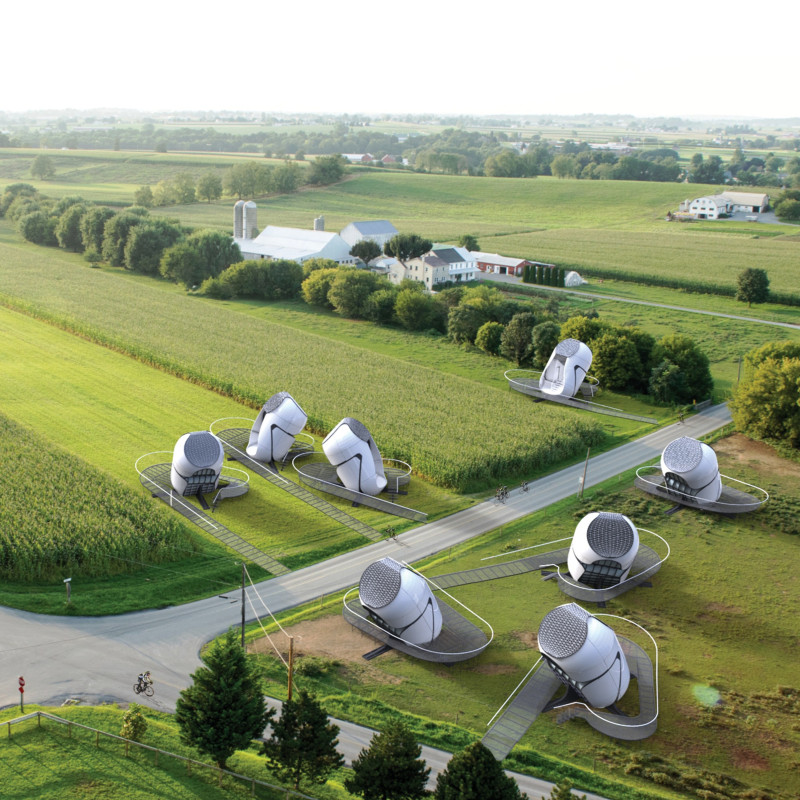5 key facts about this project
Design Approach and Unique Functions
The VeloPod distinguishes itself from conventional resting points through its modularity and mobile functionality. This flexibility enables the structure to adapt to diverse geographic contexts without imposing a permanent footprint. By utilizing recycled materials and incorporating renewable energy solutions, the design minimizes environmental impact while meeting the practical needs of cyclists. The integration of features like solar panels not only provides power for essential functions but also exemplifies a commitment to sustainability.
The spatial organization comprises open and adaptable platforms that serve various purposes such as workshops, social interactions, and resting spaces. This multi-functional aspect encourages community use and fosters relationships among cyclists and local residents. The design also emphasizes accessibility, ensuring that all features can be easily utilized by individuals of varying physical abilities.
Integration with the Environment and Community
The architectural layout of the VeloPod responds effectively to its natural surroundings. Elevated platforms allow for enhanced ventilation and natural light, creating a welcoming atmosphere. By merging the internal and external environments, the structure promotes an immersive experience while maintaining a minimal ecological footprint.
Additionally, the project reflects a strong ethos of community involvement. By situating the VeloPod in areas frequented by cyclists, it acts as a catalyst for social interaction and local commerce. This engagement with the surrounding community further enhances its role as a valuable resource along the cycling route.
As you explore the VeloPod project presentation, consider reviewing the architectural plans, sections, and designs to appreciate its technical details and unique architectural ideas. This analysis underscores how the VeloPod leverages modern architectural principles to create functional, sustainable spaces that benefit cyclists and the communities they traverse.


























